|
I don’t care for true crime. But I am intrigued by its ubiquitous popularity. So sure, why not have a professional cartoonist, stand-up comic, and an all-around funny person explain the appeal to me.
I should mention, I’m also not a memoir person. Nor do I think young people should be writing them. But all my preferences only serve to highlight the fact that I really enjoyed this true crime flavored memoir. Surprisingly so. Mostly because it’s funny, sure, infuse any story with enough humor and it’ll go the distance, but also because it was an objectively well-done book. And yes, it was loaded with murder. The author’s obsession might be partially genetic, though she goes a long way to make it her own. Easy enough to do in a culture that shares her obsession, that can’t get enough of true crime – books, podcasts, movies, Netflix’s trashy docudramas, HBO’s too-serious docudramas, etc. etc. As the world around us is rapidly spinning out of control and violence rates and real-life crimes and murders are shooting up through the roof, people apparently still want to tune in to see what motivated this or that criminal to do this or that crime. In great exhaustive detail. It is interesting to an extent, the psychology of it all, it’s possible to see the appeal without sharing the attraction. Makes this book a more enjoyable read, not like an author is chronicling her obsession with something genuinely inexplicable and unappealing, like, say, eating seafood. True crime aficionados will relate, all others might be delighted since the book alternates between personal and murderous narratives, alternating between family dynamics and true crime accounts. The cartoons are fun, very much in style of The New Yorker; the writing’s fun. All in all, a charming read. One that goes by surprisingly quickly for its bulk. Recommended.
0 Comments
I’ve discovered Olafsson by reading The Sacrament, which I really enjoyed, and was excited to read more by him when this came to Netgalley.
Olafsson is very, very good at writing quiet drama. There’s a measured Scandinavian calmness to his work, that certain brand of matter-of-factness, balanced out perfectly with a strong emotional backbone of the narrative. This is a very simple story about a seventy-five-year-old Icelandic man who, amid the recent apocalyptic events, decides to reconnect with the love of his life, a Japanese woman he knew in London who has vanished on him fifty years ago without a word. Through the dubious miracle that is social media, the two of them find each other once more, and skating through traveling restrictions across the distance that spans miles and decades, he goes to Japan. Throughout his trip, the narrative dips back into the past, to take the reader into the swinging 70s (or whatever the 70s that followed the swinging 60s were) of London to tell a tale of two star-crossed lovers from very different cultures. She and her father are Hiroshima survivors known as hibakusha, who in very bizarre twist of fate and a stunning example of victim blaming/shaming, became ostracized in their native land. He somehow never heard of Hiroshima’s fate and has to educate himself about it. That read so strangely…but maybe it isn’t a well-known fact globally? Isn’t it? Shouldn’t it be? Why would a young educated English-speaking man from a first world country not have heard of it? How? Very odd. Anyway, the two meet and it’s love. Real love. It doesn’t last, because they are soon separated – it lasts a lifetime because they never leave each other’s hearts. Still reclaiming it fifty years later is no easy task. An absolutely lovely story. A lovely love story without any traditionally concomitant sap and cheese. Olafsson engages the readers easily with his writing style, there’s an organic storytelling quality to his narrative. A pleasure to read and a surprisingly quick read too. Recommended. Thanks Netgalley. This was supposed to be lovely. I love books about books or book worlds, in this case a publishing house, populated by offbeat characters and specializing in offbeat titles. And yet the House of Marvellous Books was decidedly less than marvelous.
It’s got all the Brit-specific floppy charm of Hugh Grant’s 90s hair, but with nothing to balance it out, the story essentially overpowers itself on one note quirk. Told in journal entries, it follows the publisher’s trajectory over one especially turbulent year as told by a young assistant editor named Mortimer. Because of course a protagonist of a book like that would be named Mortimer. The official description says that the author based this book upon her personal experiences of working in small publishing houses, so quite likely there’s a lot here that’s based on reality, albeit quirked up for style. And charm. The charm that for me fell flat. I’m not sure how much of this is the book’s fault and how much of it is basic reader/author incompatibility, but for me it read dramatically exhaustively (and exhaustingly) overdone. Precocious and precious in ways that didn’t quite sustain for a volume of over 300 pages, making it a somewhat plodding read. It might have worked as a quirky BBC sitcom, but as a book it was just too much of too muchness. Mortimer’s bestie imprisoned for book theft (of course) provided some of the comedy; there were some other comedic elements, but it didn’t quite balance out the dense quality of the epistolary narration nor the fact that Mortimer isn’t that lovable of a chap. Although he is definitely a chap. Not a lad, nor a dude, nor a fella. So yeah, overall, not enough plot for the page count and the look-how-quaint-and-quirky charm stretched too thin. Not a terrible read by any means, but far from marvellous. Thanks Netgalley. Addiction is a subject horrific enough in and of itself. Certainly enough to warrant an anthology. Three anthologies in fact, of which this is the last one and the only one I’ve read. And it’s a powerhouse of one. Story after story hammers in the nightmare of deadly dependency and deleterious desire that is addiction.
These tales are viscerally disturbing but do remain on the literary side of speculative fiction in writing quality. The lineup is pretty awesome, lots of easily recognizable names. My favorites were the stories by Burke and Taff (absolutely stunning and mesmerizingly disturbing). The least favorite the one by Iglecias (that just read like someone wanted to hit every check on the socially conscious and woke list, pandering and moralizing). Overall, a great read. A journey into the darkness well worth taking…if you dare. Recommended. Thanks Netgalley. I really enjoyed Freeman’s Infinite. It stood out well above the usual thriller noise. So I remembered the name and made sure to look out for his future releases and when this came to Netgalley, I requested it right away.
And sure enough, Freeman does a good job again. Throwing in a slight science fiction premise (or more like an advanced science premise) really elevates what otherwise would have been yet another all-in-the-family sort of tale of love and revenge. The book begins on a 4th of July. Some people wave flags and some people get wasted…and so people die. The protagonist is of the latter variety, She tops off a series of sh*tty life events with some booze and some coke and dies. Once she’s revived, she finds she is no longer alone in her mind. There’s another conscience, another person, another set of memories. So she crosses the country from Vegas to the East Coast and begins to put her allegedly genius level IQ to the test by trying to sort out what’s going on with her. She meets man after man who desire her…or the woman inside her. And woman after woman who have murkier intentions. And yes, in some respects it is a very prototypical thriller, meaning that, for instance, all the women are model-gorgeous…and only one of them is actually a model. Also, here’s a small thing…recently a hyperwoke millennial pal of mine told me that it is now considered racism when African-American characters’ skin is compared to food in writing. Is that true? Cause if so, the author is certainly guilty. Every single dark-skinned character is described as something delicious. Mocha or chocolate. I mean, seriously. Is it offensive or fetishizing or just plain descriptive? Weigh in in the comments below, please. The inquiring minds want to know. Anyway, back to the book…the book is fun. Fun enough to rise above its clichés and fun enough to twist what might have bene a pretty plain plot into something genuinely unpredictable so that the prerequisite plot twist in the end is actually mostly a surprise. I enjoyed reading it and it went by very quickly for all its bulk. Great pacing, great dynamics, great energy. Recommended. Thanks Netgalley. Thus continues my wildly uneven experience with reading Tchaikovsky. It began so underwhelmingly, I’m surprised I continued and then got unpredictably, awesomely good. And now this book takes it back to the middle…at best.
It’s kind of difficult to rate, because I really liked the idea behind it and the execution…almost not at all. The idea is essentially taking that old nugget about any technology advanced enough can pass for magic and stretching it into an intergalactic narrative of a culture meet/culture clash. An anthropologist comes to a distant planet. The locals think he’s a wizard and promptly recruit him to help them fight a demon. The anthropologist, as a proper scientist, loathes to interfere with the subjects of his study, but eventually he can’t help but get involved. Questions will be answered, and shared ties revealed, and that’s all one can say about that in a review without giving something away. The execution…well, first off, it’s practically a fantasy novel and I do not like those. I mean, technically it’s a high fantasy/science fiction mash-up, but it’s heavily on the fantasy side. Secondly, it’s heavily and densely narrated over, say, dialogue driven. It’s ok, because the book is so short, but it’s kind of a drag. And yet, it’s so freaking clever that your inner anthropologist is sure to appreciate it. So, while it wasn’t an especially enjoyable reading experience. I’m going to round my rating up. Because cleverness should be rewarded wherever found, there’s a scarcity of it in the world. The Boys are back at it; at it meaning they are looking for some small scandals to bring the Seven down. In fact, it’s almost like a recycling of a story, with Jack from Jupiter living up to his creepy visage with his unsavory sexual practices and the Boys trying to get him ousted for it.
It’s kind of tragic, if you think about it, that for all their swagger and all their talk, this is pretty much the best the Boys can do. Mess with the Seven one scandal at a time, only to get one supe replaced with another and the cycle continue. For all their testosterone, they are pretty impotent. Also…Terror. Garth Ennis, I do not forgive you. Even if you’re then going to turn around and wax poetic with Butcher’s background story, the violence and the love and all that had made him the man he is now. Even if that story is as sincere and heartfelt as the violence of the series is brutal and visceral. Maybe Ennis was just looking for the opportunity to write about war some more, he certainly loves doing that. Or I don’t know…for all my objections, for how crass and over-the-top and hypermasculine and hyperviolent the Boys series is, I’m still reading them, so there’s something. Or maybe it’s an in for a penny sort of thing. But in either case, this is book 10 out of 12, so almost finished with the entire series. This is my third read by Modan, and I’m definitely a fan. This is also her most recent one and it’s nice to see how her work has progressed, but then again, she was really good right out of the gate.
The Arc of the Covenant is a sacred object lost to time. Or is it? What if the team of treasure hunting experts put their minds to finding it? On occasion, they do. The last time was interrupted by the Intifada, but Nili still remembers assisting her father as a child in looking for it. They got so close, tantalizingly close. Now, decades later, she returns to her quest. Her father is no longer mentally competent, her brother has sided with the enemy (another professor desperate to find the Arc for his own selfish reasons), and Nili is an unemployed middle-aged single mother. In other words, it’s all on her and she is determined to succeed. Sponsored by an antiquity collector who in turn is sponsored by his wife, Nili assembles a motley crew and proceeds to dig her way to the treasure. It isn’t easy, for now there’s a wall there, separating Israelis from Palestinians. No matter – the ever-enterprising Nili hires both. She even gets assistance from the local division of Israeli military forces. Let the treasure hunting begin… So maybe not quite Indiana Jones, but then again, why would it be. Not when it can be its own thing – a nuanced, often humorous take on the Middle Eastern conflict as studied in a microcosm, a satire of obsessive academia, a comedy of errors, a family drama, AND a genuinely exciting adventure story all in one. I really enjoy Modan’s books and their undeniable charm. They are offbeat in their realism, frank in their love of irony and valiantly defiant of the traditional storytelling conventions. The latter is especially noticeable in her endings. Plus, her art is great. Initially, it just looks like brightly colored cartoon-like style, but there’s actually a great deal of sophistication there, and the faces she draws are surprisingly expressive for their cartoonish features. Not just the faces, the entire characters are very expressive, their dynamics in fight or flight, the use of light and dark in the panels – absolutely great. All in all, a very enjoyable read. Recommended. Backstory, backstory, backstory. It’s all about the backstory in this volume. The wee lad who went on a walkabout in the last volume still hasn’t returned to the fold. Instead, he gets to sit down with an old man who doesn’t look it and hear a story of the early days of the company that made the supes and the supes that made the company. Ennis, who loves nothing more than a good war story, takes the readers back to WWII for a lesson in interfering.
And in the present day (of the yesteryear The Boys is set in), there are some grumbles among the Boys about the political powers that hold their strings. Things are a-changing, can The Boys stay the same? This is Ennis at his most Ennis-y, the rough and tumble and oh so testosterony. Entertaining, though not my favorite. Military and/or spy fiction aren’t really my favorites usually, nor are tales of political intrigue, especially such hypermasculine ones, but then again that’s The Boys for you. And I seem to be determined to read them all, despite the fact that they don’t delight me nearly as much as the TV show adaptation. Because it is still kinda fun and has Terror and because it still beats Manga that our library is so obsessed with and buys in disproportionate amount to all other comics. So there. Lovely. Absolutely lovely. A charming fable to remind the fast-paced world of what’s really important. Not a lot of words and lots of art – this might have been insubstantial had it not been so lovely. Yes, I’m overusing the word but it’s just so perfectly apt. The entire thing will only take you 10 minutes at most, but it’ll make for a very pleasant 10 minutes. Just think of something you like to do to slow down time and relax, be it blanket and hot cocoa on a winter night or a nap on the beach on a summer day - well, that’s the tone and mood and theme of this book, to remind you to move at the speed of your soul not the hectic world around you. Recommended.
|
AuthorWrite something about yourself. No need to be fancy, just an overview. Archives
December 2023
Categories |
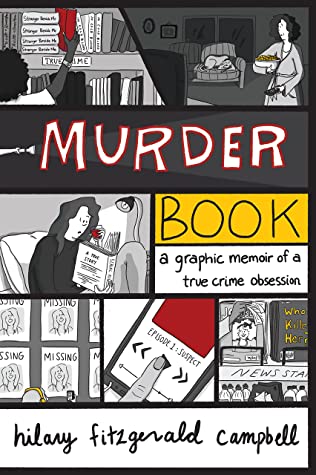
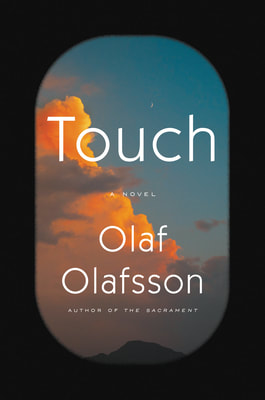
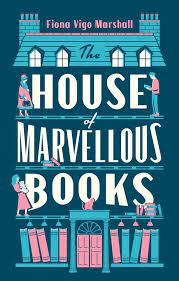
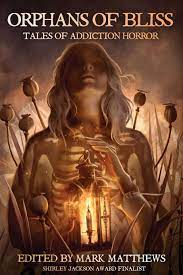
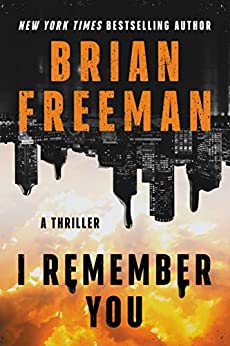
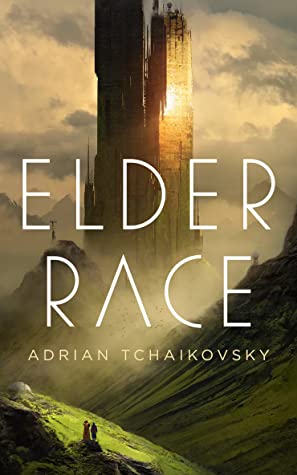
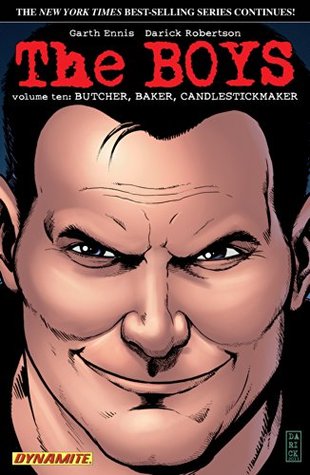
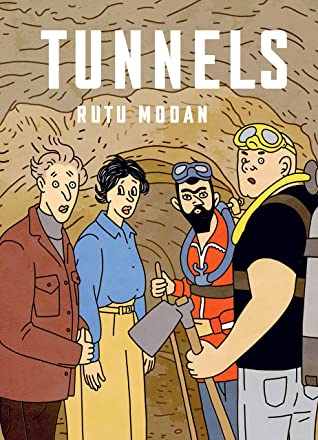
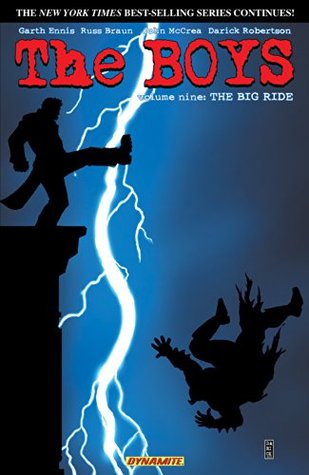
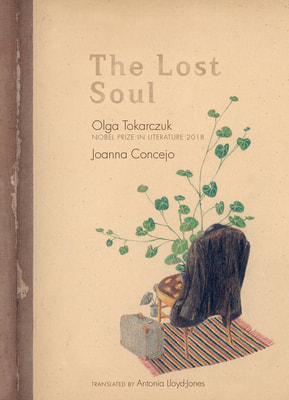
 RSS Feed
RSS Feed
